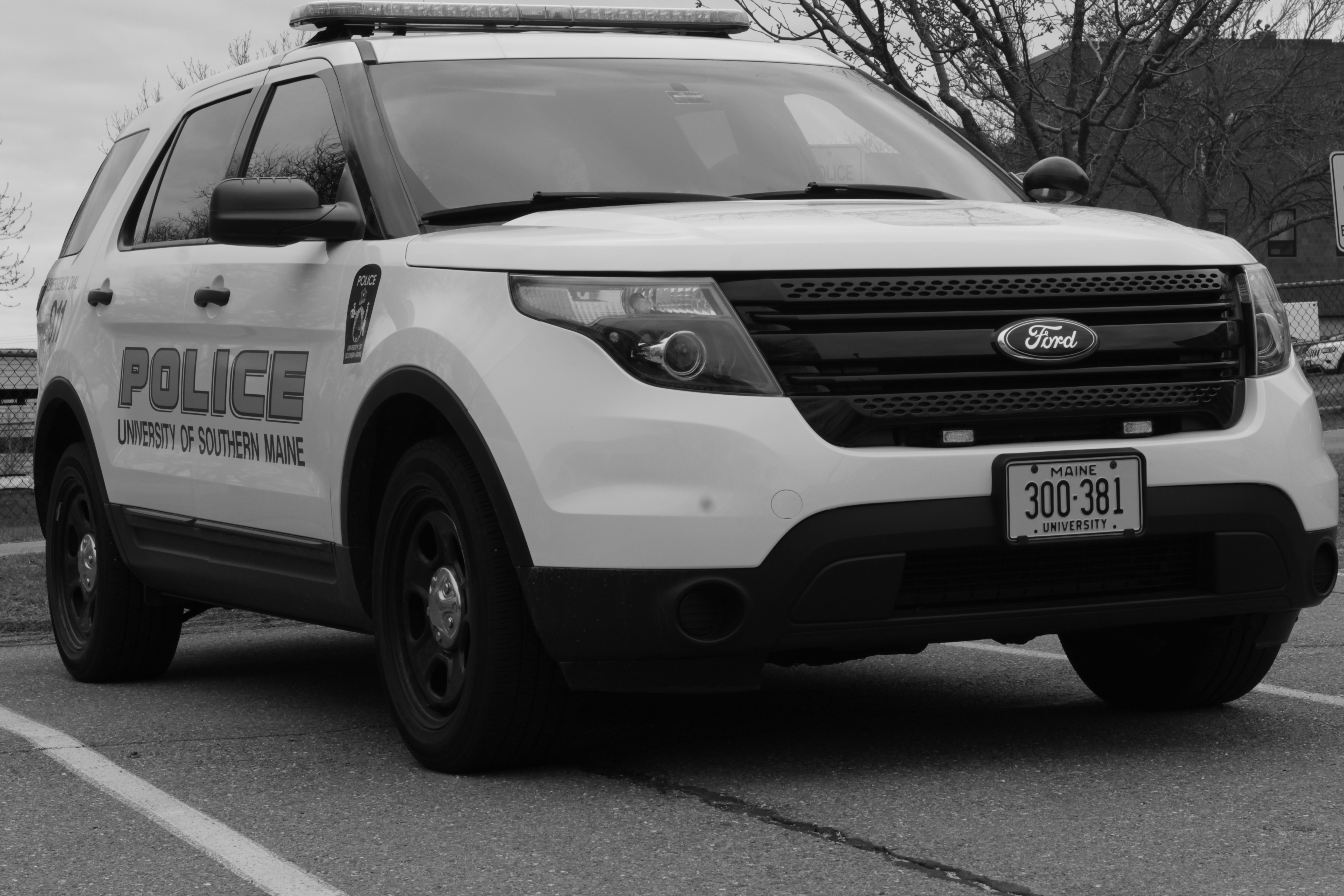By Nick Schleh, Staff Writer
The state of Maine is facing a severe shortage in public safety officials and that can extend to the USM campuses. Regardless of this shortage, Noel March, Senior Director of Public Safety and Chief of Police at USM, remains optimistic.
Earlier this month, the Portland Press Herald reported that the vacancies in the positions of public safety officials, particularly in the field of emergency dispatchers, are a major concern. People are looking to consider improving benefits through the means of legislature.
Sarah Bigney, an organizer with the Maine branches of the American Federation of Labor and Congress of Industrial Organizations labor unions, is looking to increase benefits for first responders in Maine. If passed, the law would allow for representatives to negotiate for retirement benefits after 20-25 years of service, as opposed to the alternative plan which has safety officials wait until they reach the age of 62-and-a-half.
“They’re having a hard time recruiting and retaining staff. So, one tool that could be a solution is this bill,” Bigney said.
With USM taking pride in its safety, this drought in safety officials extends to the university’s campuses.
The USM Police Department provides “…a full-service police agency, staffed by Maine Criminal Justice Academy certified police officers. Our personnel are available to serve you at all times and are dispatched from our headquarters on the Gorham campus,” as stated on the public safety site.
March stated that the standards are incredibly high, requiring candidates to pass a written test, a polygraph test, a psychological test and a physical fitness test before being hired. March is optimistic about the vocation and thinks this is a temporary lull in applicants.
“In this era of community conflict, opioid addiction and drug trafficking, elder abuse, child abuse, school safety, fraud scams and cybercrime we need good people in the ranks of law enforcement perhaps now more than ever,” he said.
March remains open to future possibilities that would increase the number of public safety officials in the state.
The National Association of State Chief Administrators reported that between 2013 and 2017 there was a 63% decrease in applicants looking for a career in law enforcement. Recent cultural stigma regarding law enforcement operating with excessive force may be connected to this decline. March, along with other Maine public safety officials, are examples of officers with a deep desire to protect their communities.
“The pay is low, the hours are long, the scrutiny is intense, the social environment is complex and very stressful…” March said, “… yet I would not have chosen another career, because for most of us this profession is a ‘calling’ to help those in need, defending others against crime, fear and social disorder. To be a ‘guardian’ within the community is a necessary and noble role, one that we know is needed but very few are willing to do.”
The complicated social environment of public safety alongside the intervention of social media, where a mistake can be broadcast across the nation in a matter of minutes, makes this no easy occupation. The proposed legislature may increase the rate of applicants in the State, with northern counties facing the brunt of the shortage. USM continues to provide public safety to its campuses.
Students interested in learning more information about USM’s commitment to public safety can go to usm.maine.edu/police/people or read the University’s Campus Safety Project usm.maine.edu/campus-safety-project/overview.

